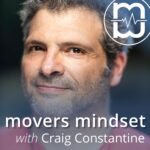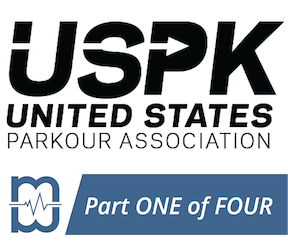
What are the key challenges and opportunities in creating a unified national governing body for the Parkour community in the United States?
Experienced practitioners work to ensure the integrity of Parkour’s future through governance and cooperation.
This conversation introduces the transition board members of the United States Parkour Association (USPK) and gets into their motivations and expertise. Each member discusses their unique backgrounds and the pivotal experiences that led them to contribute to this initiative. Topics include the need for a neutral platform to unify the Parkour community, the role of governance in fostering public trust, and the challenges of organizing a fragmented national scene.
The conversation also highlights the accomplishments and insights of individual board members. These include creating inclusive events like American Rendezvous, implementing Parkour in public school systems, and establishing training and certification standards. Their collective efforts focus on building a foundation for the sport’s long-term growth while addressing diverse barriers such as accessibility, safety, and representation.
Takeaways
Neutral platform — The importance of a neutral space for collaboration among Parkour practitioners, coaches, and organizations.
Public trust — Building legitimacy through professional standards and governance to engage parents, schools, and local authorities.
Accessibility — Overcoming barriers like financial, physical, and cultural access to make Parkour inclusive for all.
Event organization — Utilizing experiences from successful events like American Rendezvous to foster collaboration and community.
Governance challenges — Navigating conflicts and controversies while creating a national governing structure.
International perspective — Drawing lessons from international Parkour communities to adapt and grow in the U.S.
Educational impact — Implementing Parkour in schools as a means of legitimizing and spreading the discipline.
Personal sacrifices — Leaders stepping into governance roles out of a sense of responsibility rather than personal passion.
Safety focus — Developing safety standards and training to professionalize the sport and protect participants.
Evolving culture — Balancing grassroots creativity with the formalization needed to sustain Parkour’s growth.
Resources
USPK Official Website — Provides information about the United States Parkour Association and membership opportunities.
(Written with help from Chat-GPT.)
— Hello👋 I’m Craig Constantine.
In the Movers Mindset podcast, I talk with movement enthusiasts to learn who they are, what they do, and why they do it. I’m interested in the nature and philosophy of movement and in exploring themes like independence, self-direction, and human excellence. My interests color each conversation and provide some structure to Movers Mindset. But since I like to take the scenic route, every conversation ends up going somewhere unique.
The purpose of Movers Mindset is to create and share great conversations with movement enthusiasts. Each conversation feeds my insatiable curiosity, but I share them to turn on a light for someone else, to inspire them, or to give them their next question.
I appreciate your time and attention, and I don’t take it for granted.
— Thank you!
Want more? Subscribe to the email list for weekly updates—new episodes and archive highlights delivered to your inbox.
I invite you to cultivate a meaningful life—through presence, not pursuit. You can learn more about me and all my projects at, https://craigconstantine.com.
If you like what I’m doing through Movers Mindset, learn more about becoming a patron.
ɕ
